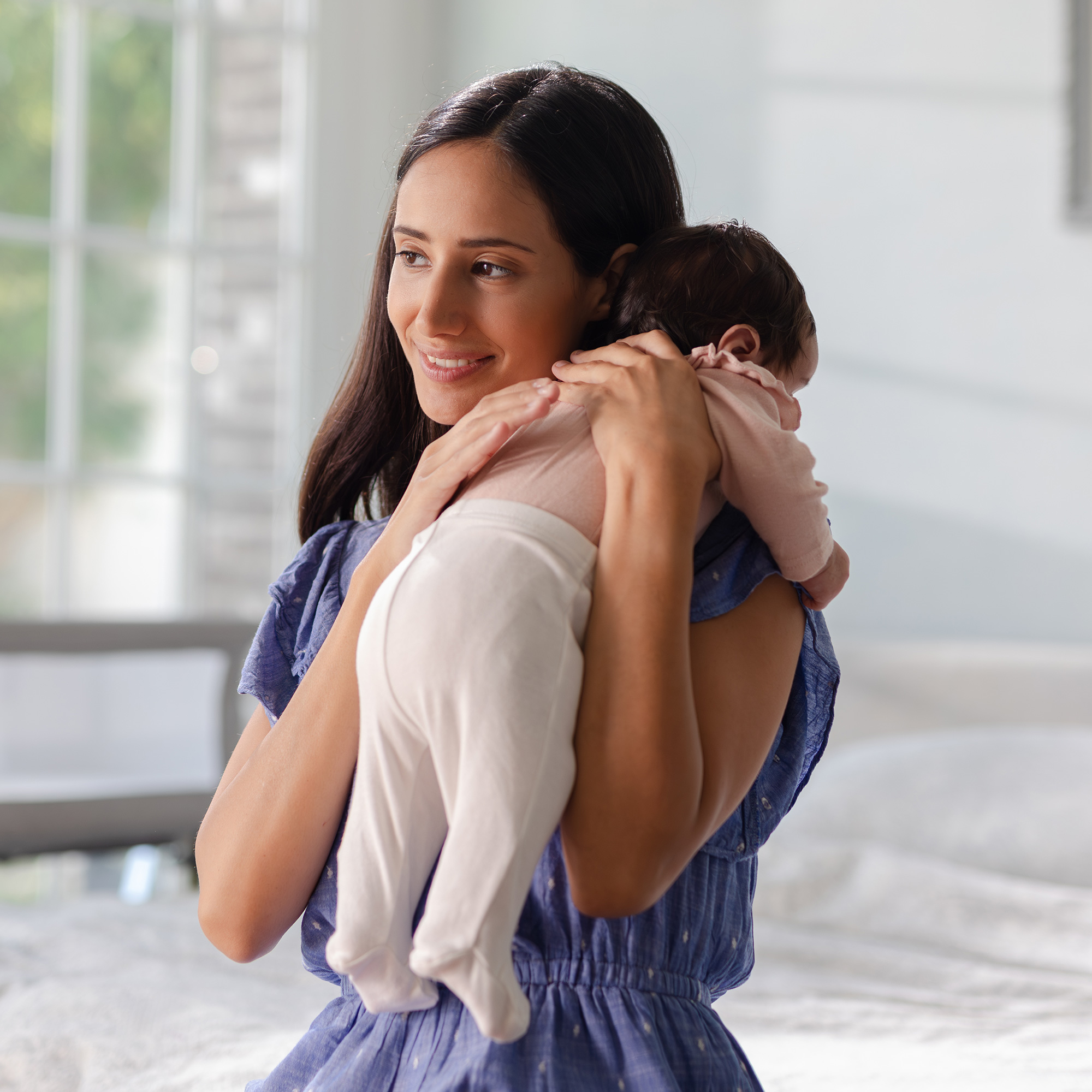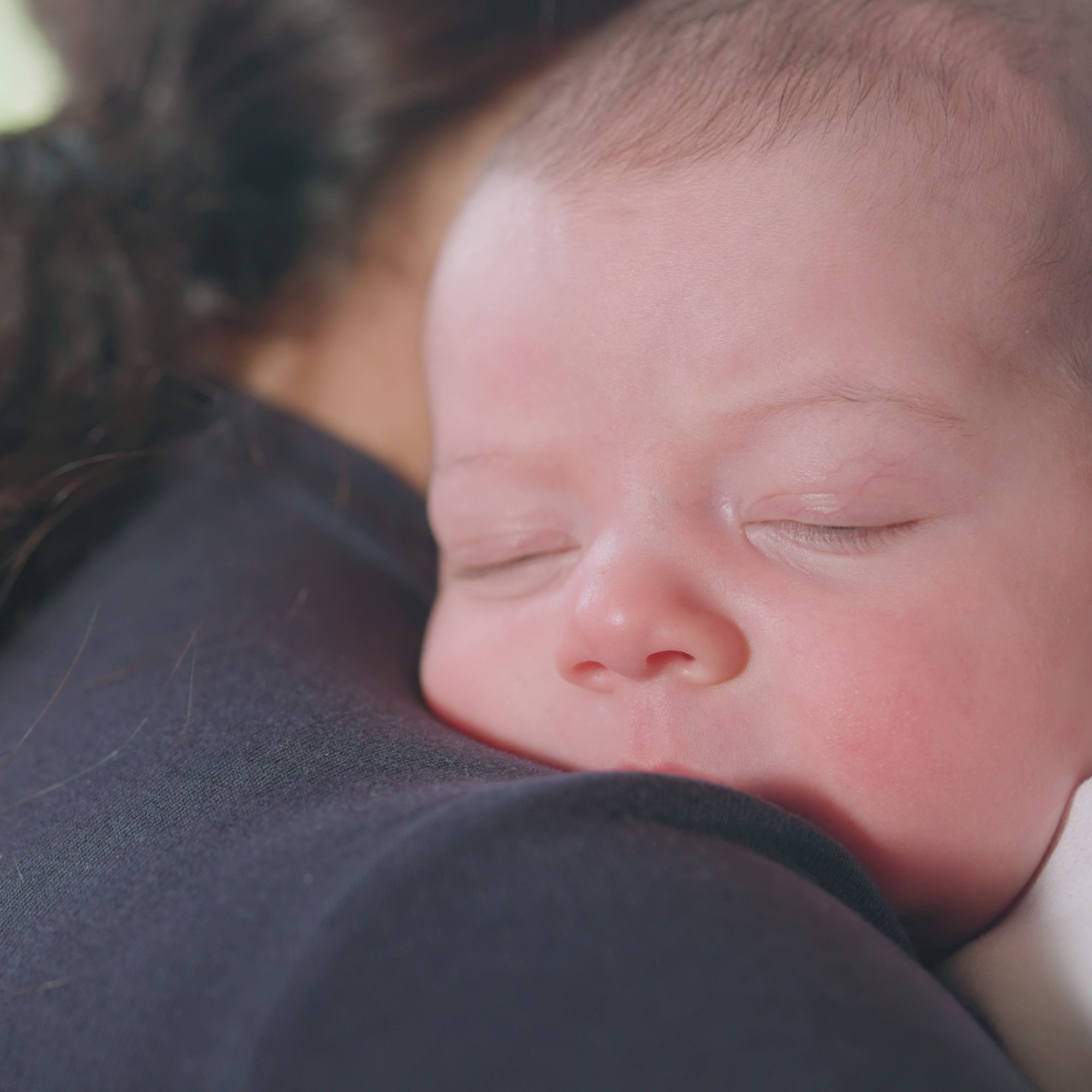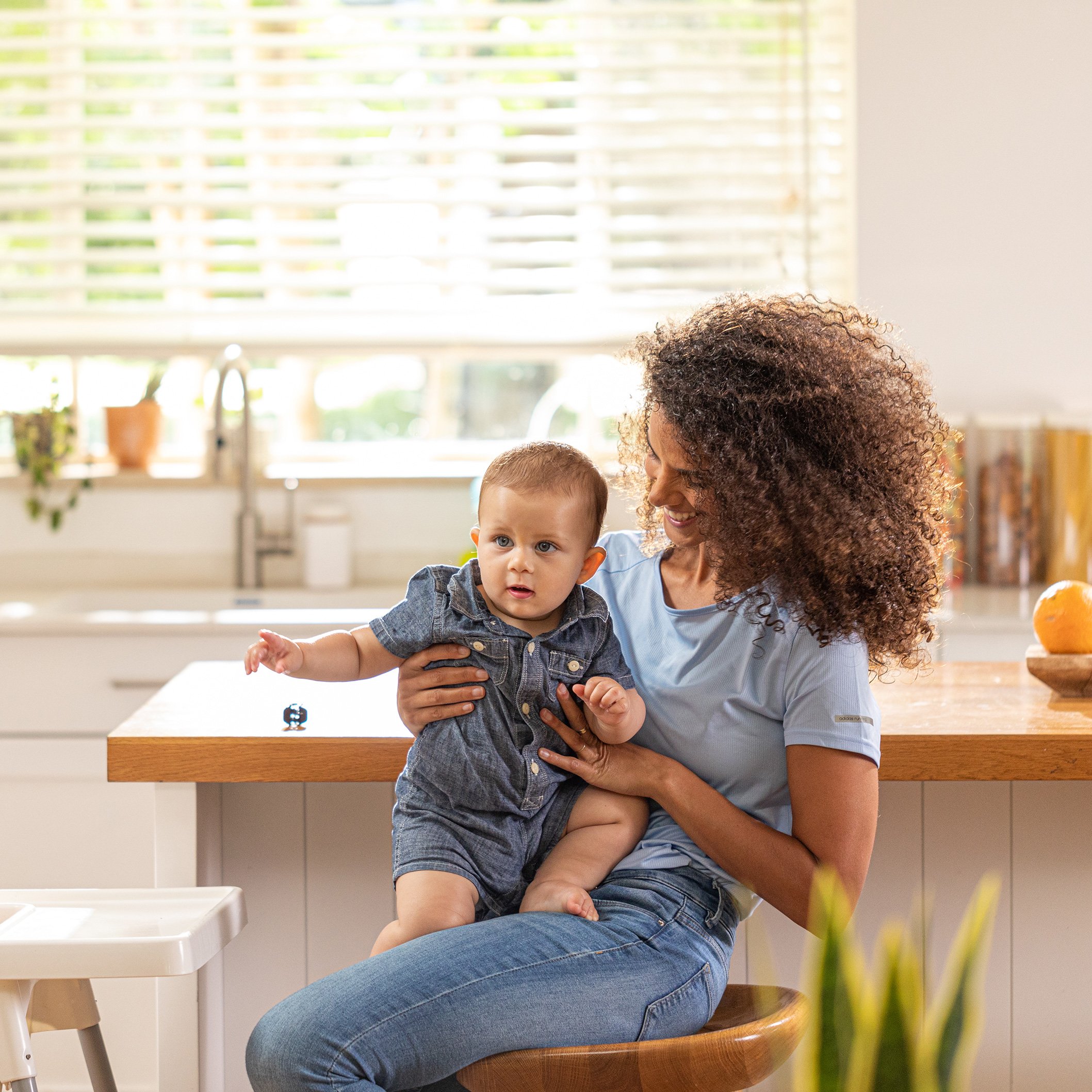Why Do Babies Hiccup So Often? Causes & Remedies
It’s normal to notice your baby hiccuping even before birth. Many parents are curious about why this happens. In this blog, we’ll explain what causes them, why they’re totally okay, and simple tips to help ease them.
Why Do Babies Get Hiccups?
Babies' hiccups are caused by abrupt contractions of the diaphragm, a breathing-assistance muscle located beneath the lungs. When the diaphragm contracts involuntarily, the vocal cords close quickly—this creates the familiar "hic" sound.
In babies, this happens more often because both their nervous system (which controls the diaphragm) and their digestive system (which can irritate the diaphragm) are still developing. This makes them more sensitive to certain triggers that adults or older children might not react to in the same way.
Common triggers of baby hiccups:
- Feeding too fast: Rapid sucking causes the stomach to expand quickly which can irritate the diaphragm.
- Swallowing air during feeding: Happens often if the baby isn’t latched properly or the bottle angle allows air in.
- Overfeeding: A full stomach can press against the diaphragm and cause spasms.
- Sudden temperature changes: A quick shift, like moving from a warm bath to cool air, can sometimes trigger hiccups.
- Excitement or laughter (in older infants): Strong emotions can also lead to diaphragm spasms.
Fetal Hiccups: Why Do Babies Hiccup Even Before Birth?
Although it may seem unexpected at first, fetal hiccups are quite common and typically begin in the second trimester. Many expectant moms describe the sensation as gentle, regular movements, which are usually indicative of your baby's normal development. As your infant practices breathing movements, their diaphragm begins to contract and relax. These contractions might sometimes result in hiccups.
It’s also thought that swallowing amniotic fluid or the early development of the nervous system may play a role. In simple terms, hiccups may be your baby’s way of preparing for life outside the womb by exercising the muscles they’ll need to breathe.
While occasional hiccups in the womb are completely normal, you should talk to your doctor if you notice them becoming very frequent, lasting for hours, or if you feel a change in your baby’s usual movement pattern.
Why Do Babies Experience Hiccups After Feeding?
Babies frequently experience hiccups after eating, which is usually caused by the way their small digestive systems react to food. Overfeeding is one of the primary causes. Hiccups may result from the diaphragm spasming due to pressure from an overfull baby's stomach.
Swallowing air when feeding is another common cause, especially if bottle-feeding or if the latch on the nipple is not secure enough. The air trapped within the stomach can increase pressure, resulting in hiccups. Feeding your baby too quickly or feeding your baby from a bottle that has a high-flow nipple could also cause the swallowing of air and inflating of the stomach at the same time.
Gas and pressure build up in the stomach can irritate the diaphragm, causing hiccups. Although they might feel uncomfortable, hiccups are usually not harmful and tend to stop on their own. Making some small adjustments can reduce how often they occur.
Hiccups After Breastfeeding: What’s Normal and How You Can Help
Hiccups after breastfeeding often happen when babies swallow air during feeds, usually due to an improper latch. If a baby isn’t latched deeply onto the breast, they may take in air along with milk, which can irritate the diaphragm.
A fast milk flow can also make babies gulp quickly, leading to more air intake and a full stomach, both of which can trigger hiccups. To help reduce this, ensure your baby is well-positioned, with their head slightly raised and body supported. Adjusting your feeding posture and helping your baby latch properly can go a long way in preventing hiccups.

Quick and Easy Remedies to Soothe Your Baby’s Hiccups
Most baby hiccups are harmless and go away on their own. But if they happen often or seem uncomfortable, there are a few simple things you can try to help:
Burp your baby during and after feeds
Trapped air is a common cause of hiccups. Burping halfway through and after feeding can release this air and ease pressure on your baby’s stomach and diaphragm.
Feed in a calm and quiet environment
Babies can gulp air if they’re overstimulated or crying during feeds. A calm setting helps them stay relaxed and feed at a steady pace.
Use anti-colic bottles for feeding
The unique system in anti-colic bottles uses special vents to reduce the chances of your baby swallowing air when they feed reducing the chances of hiccups.
Hold your baby upright for 20–30 minutes after feeding
Keeping your baby upright after feeding supports digestion and reduces the chance of milk or gas pushing against the diaphragm.
Try smaller, more frequent feeds Overfeeding can stretch a baby’s stomach and cause hiccups. Offering milk more often in smaller amounts can prevent this.
Check your feeding position
Make sure your baby’s head is higher than their chest during feeding, and that their body is well-supported. This helps prevent them from swallowing air.
Use a slow-flow nipple for bottle-fed babies
If your baby drinks too quickly, they might take in air along with milk. A slower nipple can help control the flow and reduce gulping.
Offer a pacifier between feeds
Gentle sucking on a pacifier can help relax your baby’s diaphragm and stop hiccups naturally.
Avoid sudden activity right after feeding
Bouncing, tummy time, or fast movement right after a meal can lead to hiccups. Let your baby settle before active play.
Gripe water or anti-colic drops (only if advised by your doctor)
Some parents use gripe water or colic drops, but always check with your pediatrician before giving your baby anything new.
When Should You Worry About Baby Hiccups? Signs You Need to Know
Sometimes, hiccups may point to something more.
If your baby gets hiccups after almost every feeding, if they last longer than usual, or happen very frequently throughout the day, it could point to reflux or a digestive sensitivity. In these cases, the hiccups may be the body’s way of responding to irritation or discomfort in the esophagus or stomach.
Pay attention to your baby’s behavior during hiccups.
If your baby shows signs of discomfort during hiccups, it could indicate that the hiccups are causing distress. If your little one becomes unusually fussy, cries more than usual, arches their back, or seems restless during or after hiccups, they might be experiencing discomfort. These signs can suggest that the hiccups are affecting their digestion or causing irritation in the stomach.
Reach out to your doctor if you're unsure.
If your baby’s hiccups are frequent enough to disrupt their sleep or feeding, it’s a good idea to consult with your pediatrician. Additionally, if the hiccups are accompanied by other concerning symptoms such as vomiting, poor weight gain, or signs of discomfort, it’s important to seek medical advice. Frequent or persistent hiccups that affect your baby’s well-being should be addressed by a healthcare professional.
Conclusion
Hiccups are a completely normal part of your baby’s development, whether before or after birth. Most of the time, they are a harmless reflex that doesn’t cause any lasting discomfort. As your baby grows, these little hiccups will likely happen less frequently. Simple steps, like burping your baby during and after feedings and adjusting their feeding position, can help reduce their occurrence. While hiccups usually resolve on their own, if they become more frequent, seem to cause distress, or occur alongside other concerning symptoms, it’s always a good idea to consult your pediatrician.
FAQs
Why do babies get hiccups so often?
Babies experience hiccups frequently because their diaphragm and digestive systems are still developing, making them more sensitive to triggers like feeding and air intake.
Are baby hiccups normal?
Yes, baby hiccups are completely normal and a harmless reflex that typically occurs as your baby’s body develops.
Why do babies get hiccups after breastfeeding?
Hiccups after breastfeeding can occur when babies swallow air due to an improper latch or if the milk flow is too fast, causing their stomach to become full and pressing against the diaphragm.
How can I stop my baby’s hiccups?
You can try burping your baby during and after feeds, feeding in a calm environment, using a slow-flow bottle nipple, and offering a pacifier. These steps can help reduce air intake and prevent hiccups.
When should I worry about my baby’s hiccups?
While hiccups are usually harmless, consult your pediatrician if they become very frequent, last longer than usual, cause your baby distress (such as crying or fussiness), or are accompanied by other concerning symptoms like vomiting or poor weight gain.

